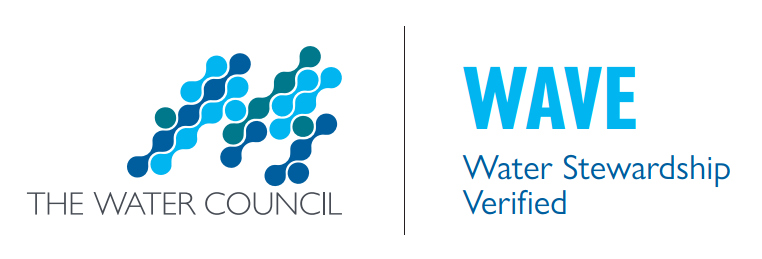Marquette University is the first institution of higher education to participate in The Water Council’s WAVE program
MILWAUKEE — Marquette University announced today that it has committed to The Water Council’s WAVE program for improving, reporting and recognizing good water stewardship by institutions. Marquette President Michael R. Lovell made the announcement at the Sustainability 2.0 Conference; Marquette is the first college or university to participate in the program.
“We are proud to commit Marquette University to the WAVE program to become a verified water steward,” Lovell said. “As a Catholic, Jesuit university, this commitment aligns with the Society of Jesus’ Universal Apostolic Preferences and Pope Francis’ Laudato Si’, which call us to ‘collaborate in the care of our Common Home.’ As the first institution of higher education to enter this space, we look forward to partnering with The Water Council in paving the way for other organizations to adopt these principles and reduce water risk.”
“We are thrilled with the opportunity to work with Marquette University and expand WAVE into the higher education community,” said Dean Amhaus, president and CEO of The Water Council. “Marquette’s participation will enable the university to meet its dual objectives of fulfilling its commitment to sustainability and providing its students with water stewardship experience that translates to real-world value as they pursue their careers.”
The Water Council’s methodology for its WAVE program includes an accelerator methodology built on understanding water uses, impacts and risks; approval of a corporate water stewardship policy; prioritizing sites where water-related risks can be mitigated; and communicating a corporate action plan, goals and timeline. The WAVE program concludes with independent verification, which ensures that companies can be confident that they are credibly communicating their water stewardship efforts to key stakeholders and the public.
Marquette recently received the STARS Bronze rating for comprehensive sustainability achievements and committing to the WAVE program is the latest way in which the university is working toward a sustainable future. Other recent initiatives include an updated endowment policy that prohibits direct investments in fossil fuels; the Marquette University Police Department moving to hybrid squad cars; enhanced opportunities for bicycle use; renewable energy initiatives; sustainable building standards; and the Sustainability Internship Program. More information about Marquette’s sustainability efforts is available online.
The Water Council is a global hub dedicated to solving critical water challenges by driving innovation in freshwater technology and advancing water stewardship. Built on more than a century of innovation, it has coalesced one of the most concentrated and mature water technology clusters in the world from its headquarters at the Global Water Center in Milwaukee, Wisconsin. Recognizing the need for smarter and more sustainable use of water worldwide, The Water Council also promotes water stewardship as a natural complement to water innovation in the effort to preserve freshwater resources in the Midwest and around the world.
NOTE: This press release was submitted to Urban Milwaukee and was not written by an Urban Milwaukee writer. While it is believed to be reliable, Urban Milwaukee does not guarantee its accuracy or completeness.
Recent Press Releases by Marquette University
New Marquette Law School Poll finds large majority of Wisconsin voters not yet tuned in to who is running in major 2026 elections
Oct 29th, 2025 by Marquette UniversityNo candidate has established strong position in public favorability in governor, state Supreme Court races; large majorities of voters undecided
New Marquette Law School National Survey Finds Large Majority Think Political Violence is a Big Problem, But With Sharp Partisan Differences
Oct 1st, 2025 by Marquette UniversityAmericans are overall pessimistic on reducing intense political conflict; half of those polled say heated language by leaders makes violence more likely




















